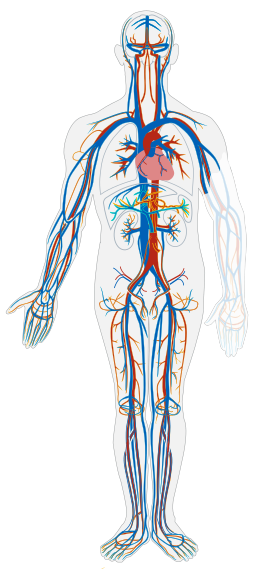Package Exports
- vas
This package does not declare an exports field, so the exports above have been automatically detected and optimized by JSPM instead. If any package subpath is missing, it is recommended to post an issue to the original package (vas) to support the "exports" field. If that is not possible, create a JSPM override to customize the exports field for this package.
Readme
vas 
simple composable data services using muxrpc
npm install --save vasfor a user interface complement, see inu

example
var vas = require('./')
var pull = vas.pull
var values = require('object-values')
var service = {
name: 'things',
manifest: {
all: 'source',
get: 'async'
},
init: function (server, config) {
return { all, get }
function all () {
const things = values(config.data)
return pull.values(things)
}
function get (id, cb) {
cb(null, config.data[id])
}
}
}
// could also attach db connection, file descriptors, etc.
var config = {
data: {
1: 'human',
2: 'computer',
3: 'JavaScript'
}
}
var port = 6000
var url = `ws://localhost:${port}`
var server = vas.listen(service, config, { port })
var client = vas.connect(service, config, { url })
client.things.get(1, (err, value) => {
if(err) throw err
console.log('get', value)
// get human
})
pull(
client.things.all(),
pull.drain(v => console.log('all', v))
)
// all human
// all computer
// all JavaScript
setTimeout(function () {
server.close()
client.close()
}, 1000)for a more complete example, see ./example.
usage
a vas service is a definition for a duplex stream that could respond to requests.
a vas service is defined by an object with the following keys:
name: a string nameversion(optional): a string semantic versionmanifest: an object muxrpc manifestpermissions: an object muxrpc permissionsinit: ainit(server, config)pure function that returns an object of method functions to pass intomuxrpcservices: any recursive sub-services
many vas services can refer to a single service or an Array of services
vas = require('vas')
the top-level vas module is a grab bag of all vas/* modules.
you can also require each module separately like require('vas/createServer').
server = vas.createServer(services, config)
a vas server is an instantiation of a service that responds to requests.
createServer returns an object that corresponds to the (recursive) services and respective methods returned by init.
server.createStream()
returns a duplex pull stream using muxrpc
client = vas.createClient(services, config)
a vas client is a composition of manifests to makes requests.
createClient returns an object that corresponds to the (rescursive) services and respective methods in manifest.
client.createStream()
returns a duplex pull stream using muxrpc
vas.listen(services, config, options)
creates a server with createServer(services, config), then
listens to a port and begins to handle requests from clients using pull-ws-server
options is an object with the following (optional) keys:
port: port to open WebSocket serveronListen: function to call once server is listening
vas.connect(client, config, options)
creates a client with createClient(services, config), then
connects the client to a server over websockets using pull-ws-server
options is an object with the following (optional) keys:
url: string or object to refer to WebSocket serveronConnect: function to call once client is connected
TODO vas.command(services, config, options, argv)
run a command on a server as a command-line interface using muxrpcli
options are either those passed to vas.listen or vas.connect, depending on if argv[0] === 'server'
argv is expected to be process.argv.
inspiration
license
The Apache License
Copyright © 2016 Michael Williams
Licensed under the Apache License, Version 2.0 (the "License"); you may not use this file except in compliance with the License. You may obtain a copy of the License at
http://www.apache.org/licenses/LICENSE-2.0Unless required by applicable law or agreed to in writing, software distributed under the License is distributed on an "AS IS" BASIS, WITHOUT WARRANTIES OR CONDITIONS OF ANY KIND, either express or implied. See the License for the specific language governing permissions and limitations under the License.




